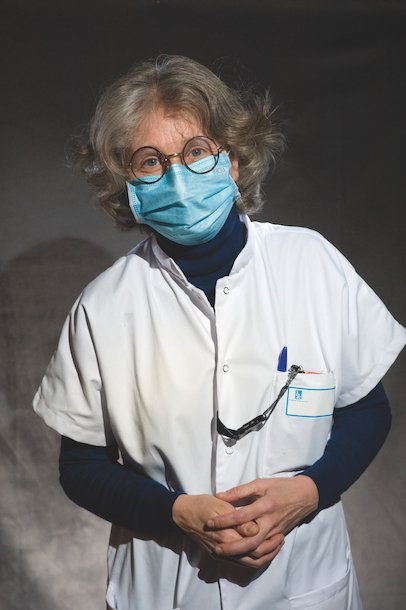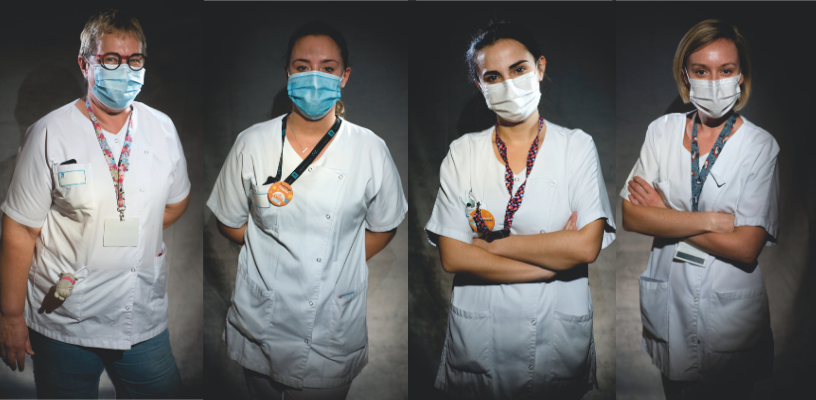Florence Ader, 2020 Research Prize
In addition to being an Inserm* researcher, Florence Ader is a clinician treating patients in the field. It is in honor of this dual role that has she has been selected to lead the large-scale clinical trial Discovery … and to receive the Research Prize!

Among the COVID-19 experts, Florence Ader is one of the rare women who is both a researcher and a clinician… Affiliated since the 2000s with the Inserm co-directed International Center for Research in Infectious Diseases (CIRI) in Lyon, she has also worked as an infectious disease specialist and pulmonologist at Croix-Rousse Hospital for the past two decades, in addition to being trained in medical intensive care. Yet she remains largely unknown by the general public, despite appearing alongside former French prime minister Édouard Philippe at a televised conference on COVID in April 2020. And this is not surprising: she who places « scientific rigor and patient health above everything else », is discreet and prefers working out of the spotlight. « Even in times of crisis, we have to keep our initial objective in mind: and that is to increase our knowledge to improve patient treatment », she notes. It is clear then that the controversies that rocked science at the start of the crisis only interest her « from afar ».
A European trial included in a global project
It is also certainly due to her scientific rigor – as well of course to her high level of research and clinical expertise – that Inserm’s REACTing consortium called on her to set up and lead the Discovery trial, launched in March 2020. « Daughter » of the Solidarity trial conducted under the aegis of the World Health Organization (WHO) in Europe and worldwide, the objective of Discovery is to test four experimental treatments for COVID-19, each in combination with standard of care: remdesivir – an antiviral developed to treat Ebola; hydroxychloroquine – used to treat lupus and rheumatoid arthritis; the combination of lopinavir and ritonavir – for the treatment of HIV; and the same combination together with interferon beta – a substance produced naturally by the immune system.
« Thanks to the power of Solidarity, we’ve obtained conclusive findings, pre-published online in October 2020, establishing the inefficacy of three of these therapies: hydroxychloroquine, lopinavir/ritonavir, and lopinavir/ritonavir combined with interferon beta. As such, these ‘treatment arms’ of the clinical trial have been stopped. From now on, we’ll focus on remdesivir », sums up the researcher.
Without clinicians and patients nothing would have been possible
The next steps? Ader and her colleagues are hoping for results that will enable a decision to be made on remdesivir « in early 2021 ». In the longer term – « within a few weeks or months » –, the trial could make it possible to test new candidate treatments having shown promise in preclinical animal studies or initial administrations to humans (phase II clinical trials).
The infectious disease specialist continues: Discovery would never have been possible without the active involvement of both Inserm – « which federates medical research excellence in France » and her fellow clinicians – « who at the start of the crisis accepted the added workload of informing patients about the trial and inviting them to take part… when they already had many patients to care for ». Also decisive has been the adherence of the patients themselves « who’ve been numerous in accepting to participate in this project to further research ». And to highlight the « remarkable » nature of the commitment by the various players. Proof, if ever this was needed, that in a time of crisis the common good often prevails… and brings people together.

Note :
*Unit 1111 Inserm/CNRS/ENS de Lyon/Université Claude Bernard Lyon 1, Lyon
